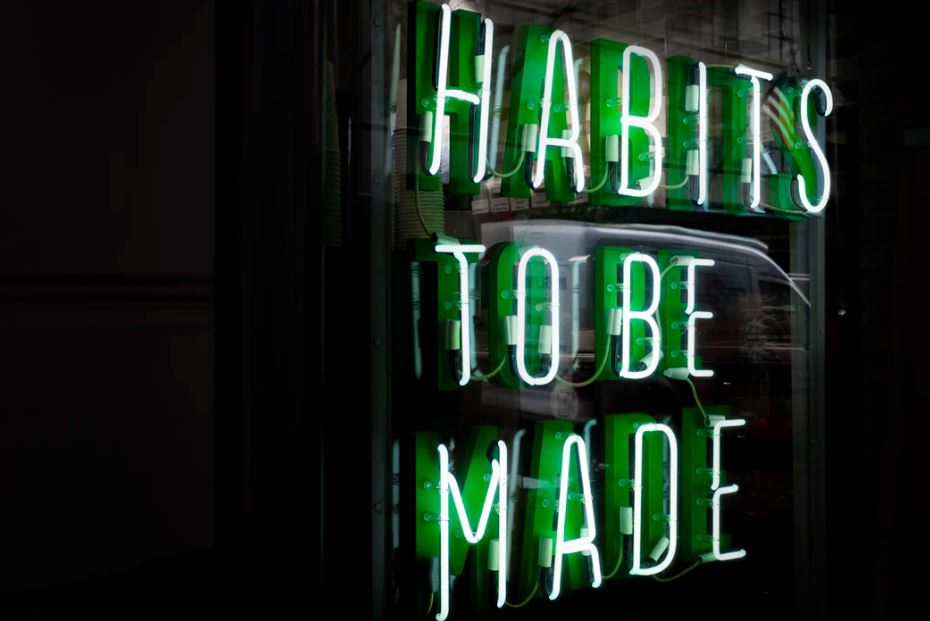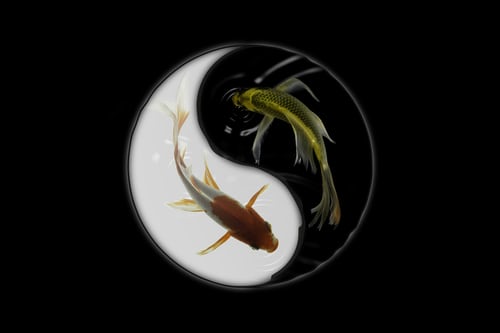“We are what we repeatedly do. Excellence then, is not an act, but a habit.”
–Aristotle
It would be impossible to talk about personal leadership without talking about habits.
Aristotle made his observation more than 2,000 years ago, and it still holds true.
Can you imagine a great leader with terrible habits? (disclaimer: we all have some bad habits and the goal is never to be perfect)
The Big Idea—To a great extent, your life is the sum total of your habits. And your habits, good or bad—over time—will make or break you.
And now that we’ve talked about your purpose, priorities, and your life plan in this series—you need habits that drive them or you won’t get far.
Your habits will either fuel who you want to become, or gradually drag you away from your most important goals.
How to predict your future
If you want to know where you will be 10 years from now, take a good look at your habits and you will find out.
You might have goals, but your habits are the systems that support your trajectory.
Your return on investment (for just about anything) is almost always related to the amount of quality time you spend on it.
Think of habits like compound interest over time.
Tiny daily habits will support, or sabotage, our goals—the big changes we want to make in our lives. Habits are worth understanding and transforming, since they will add up to become our legacy.
In the psychology world we call them seemingly insignificant decisions. They seem so small that they won’t have much impact on your life, but taken cumulatively, they shape the course of our life.
I love this quote by habit expert James Clear:
“Time magnifies the margin between success and failure. It will multiply whatever you feed it. Good habits make time your ally. Bad habits make time your enemy.”
The partner you are, the parent you are, the friend you are, the person you are remembered as—will be directly linked to the habits you develop.
Good habits have the power to catapult us into peak physical fitness, create a thriving marriage, or build strong bonds with our children. Bad habits literally have the power to destroy, and even shorten, our lives.
As a leader (at work and home)—how many great things can you accomplish without the persistent power of great habits?
The research and neuroscience
I think it’s fair to say, there are few living people who understand habits better than journalist Charles Duhigg, who wrote the landmark bestseller—The Power of Habit—in 2014. It is widely recognized as the most comprehensive book ever written on habits.
If you are like any other human, you may have experienced the frustration that comes will trying to use sheer willpower and discipline to change a bad habit.
Here’s some of the science that explains it:
In 1949, Canadian neuropsychologist Donald Hebb coined a phrase I heard repeatedly in graduate school, “Neurons that fire together, wire together.”
In other words, as you perform daily routines or habits, the physical connections in your brain get stronger (think of a fiber optic cable that gets thicker every time a signal runs through it)…meaning that you are much more likely to repeat the same behavior in that same situation the next time.
Duhigg explains it this way—Think of the first time you learned to parallel park. At first it seems very difficult, then over time, the decision-making part of your brain begins to go to sleep and the part of the brain responsible for patterns and routines takes over. Your brain does this to save energy, so you don’t have to think so hard about your basic daily activities.
Everything from brushing your teeth, to gambling, to parallel parking follows this same behavioral and neurological process.
Think of it this way—a habit is a choice we deliberately make, and then stop thinking about at some point, but keep doing every day.
If you want to see one of the greatest visuals on hard wiring of habits in our brains, check out the TED talk on the backwards bicycle! It will absolutely blow your mind!
Incredibly—your brain amounts to about 3% of your total body weight, but consumes nearly 25% of your daily energy, so it is highly motivated to look for ways to conserve your energy.
In a way, our brain is trying to do us a favor by saving energy, but this is like fighting gravity when it comes to changing our habits and routines.
Duhigg says that every habit can be broken down into 3 parts—
- A cue
- A routine (your behavior or habit)
- And a reward
When changing a habit, he recommends the following framework:
- Identify your routine (the behavior you want to change)
- Experiment with different rewards
- Isolate your cue
- Have a new plan
In our noisy and busy modern lives, it can be really hard to pin down exactly what cues and rewards are motivating our behavior. But Duhigg’s (and others) research show that habits are clearly linked to 5 things—Location, Time of Day, Emotional State, Other People, and Immediately Preceding Action.
For example, researchers have shown that it’s much easier to change a habit when you go on vacation (i.e. location)!
My wife and I tried this when we decided to stop watching TV in Hawaii, but continued for another month after we got home.
You can use the following 5 questions to help you identify your cues and rewards:
- Where are you?
- What time is it?
- What is your emotional state?
- Who else is around?
- What action directly preceded your urge?
To illustrate this point, Duhigg tells a funny story about his habit of buying a cookie every day at 3pm at his office cafeteria. Using these questions, he eventually identified that he just needed a break from his computer to socialize with people at 3pm daily, so he began chatting with coworkers instead of eating cookies every day!
The result?
He lost weight and connected more with his coworkers—a double win!
If you want more on powerful ways to change habits, check out my post on the science of using your environment, not willpower, to make changes in your life.
Take action now
I recommend you pick a habit that you want to change. Then use the 5 questions above to write your answers in a journal for a week. This should help you identify your cues.
Then begin to experiment with different rewards for yourself to find out what you are really wanting from your habit. Then create a new plan—i.e the new habit you want to form—by changing your location, your rewards, or eliminating cues like people that may trigger the habits you want to change.
One last thought to mention, it’s always easier to start a new habit (or replace it) than to stop a bad one.
For example, one study showed that people were more successful in stopping caffeine intake by drinking decaf coffee every morning instead of stopping their entire morning coffee routine.
Let me reiterate—learning how to change your habits might be one of the most important things you ever do for your life, and your leadership impact.
So let me leave you with the following quote to reflect on:
“Sow a thought and you reap an action; sow an act and you reap a habit; sow a habit and you reap a character; sow a character and you reap a destiny.” –Ralph Waldo Emerson
Have a great weekend!
Parker
*If you have enjoyed Parker’s blog, check out The Next Peak Podcast that Parker co-hosts, or the episode about habits. We interview successful leaders and discuss research-based principles that help people win in the workplace without compromising the things that matter most—relationships, a life of purpose, and health.
Suggested Resources
- The Power of Habit—Why we do what we do in life and business. Charles Duhigg
- Tiny Habit Academy, Stanford researcher BJ Fogg’s website
- Atomic Habits by James Clear




